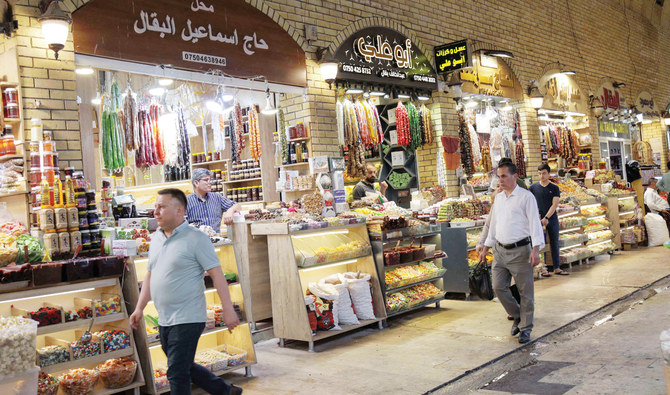
- ARAB NEWS
- 04 Jul 2025

IRBIL: Turkiye’s presidential election is being anxiously watched by Kurds in Syria and Iraq as economic interests compete with fears of a regional military escalation against some Kurdish groups.
The long-running and deadly conflict between Ankara and militant groups from the ethnic Kurdish minority has spilled across the borders of both Iraq and Syria.
But Turkiye is also a major economic partner, especially for northern Iraq’s autonomous Kurdish province which has long exported oil through a pipeline that runs through Turkiye and has trade ties worth billions.
“Economically, there are mutual benefits,” said Iraqi political scientist Mohamed Ezzedine.
Turkiye’s President Recep Tayyip Erdogan, having governed for 20 years, has fostered key strategic links with Iraqi Kurdistan’s President Nechirvan Barzani who has been in power for three decades.
After the first round of elections, as votes were still being counted, Barzani called Erdogan, the Turkish “reis” or chief, to express “confidence and optimism” he would defeat challenger Kemal Kilicdaroglu.
But some Kurds in Iraq and across the border in Syria fear an Erdogan victory will see a military escalation in their home regions.
Fighting between Ankara’s army and Kurdish Workers’ Party or PKK militants from Turkiye has for decades spilled over into Iraqi Kurdistan, a rugged mountain region where both sides operate military bases — with civilians often caught in the crossfire.
In northeast Syria, the Kurdish People’s Protection Units or YPG have established a semi-autonomous administration amid the chaos of the long-running civil war, and the group is backed by the US as part of an anti-terror coalition.
Ankara, however, considers them an extension of the PKK, which is labeled a terrorist group by Turkiye and its key Western allies, and has waged successive military campaigns against them.
Despite the conflict’s impact in Iraqi Kurdistan, the region also benefits from its neighbor, with trade ties worth an estimated $12 billion in 2022.
Many local businesses would like to keep things the way they are.
“Since Erdogan became president, we have been satisfied,” said Ahmed Krouanji, who runs a shop in Irbil’s market.
“There is a lot of trade with Turkiye, the economic situation has improved.”
Others express views reflecting solidarity with Kurds across the border.
An Erdogan victory “is not in the interests of the Kurds of Turkiye,” said Ali Khodr, a man aged in his 30s.
Turkiye’s leading pro-Kurdish party, the People’s Democratic Party, denounces Ankara’s persecution of its Kurdish minority and backs Kilicdaroglu.
But the only consolation for the president’s opponents after first-round voting that delivered the incumbent a comfortable lead, was that for the first time, Erdogan has been forced into a runoff.
Over two decades, Irbil’s leaders have forged close ties with the Turkish president, who receives Nechirvan Barzani and his cousin, Prime Minister Masrour Barzani, on their regular visits to Ankara.
“The government of Kurdistan has always tried to have good relations with Turkiye, which is their gateway to the rest of the world,” said Ezzedine. “This affinity was built on economic foundations.”
For years, direct sales of crude to Turkiye, without approval from Iraq’s federal government, were the economic lifeblood of Kurdistan.